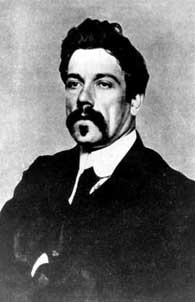A Quote by Jessie Burton
But how right is it to kill a man for something that is in his soul?
Related Quotes
As a man has no right to kill one of his children if it is diseased or insane, so a man who has made the gradual and conscious expression of his personality in literature the aim of his life, has no right to suppress himself any carefully considered work which seemed good enough when it was written. Suppression, if it is deserved, will come rapidly enough from the same causes that suppress the unworthy members of a man's family.
A good soldier is a blind, heartless, soulless, murderous machine. He is not a man. His is not a brute, for brutes kill only in self defense. All that is human in him, all that is divine in him, all that constitutes the man has been sworn away when he took the enlistment roll. His mind, his conscience, aye, his very soul, are in the keeping of his officer. No man can fall lower than a soldier-it is a depth beneath which we cannot go.
It is God's earth out of which man is taken. From it he has his body. His body belongs to his essential being. Man's body is not his prison, his shell his exterior, but man himself. Man does not "have" a body; he does not "have" a soul; rather he "is" body and soul. Man in the beginning is really his body. He is one. He is his body, as Christ is completely his body, as the Church is the body of Christ
It requires twenty years for a man to rise from the vegetable state in which he is within his mother's womb, and from the pure animal state which is the lot of his early childhood, to the state when the maturity of reason begins to appear. It has required thirty centuries to learn a little about his structure. It would need eternity to learn something about his soul. It takes an instant to kill him.
As a man and as a sports figure, you have to set limits and set boundaries on what can and cannot happen. Once you do that, your family will start to respect you. 'OK, I get it, he's all about football and handling his business,' and that's what I've done. In the past, when I was a young man - a younger man - it was hard for me to say no. Since I'm older, wiser, I know how to handle people, know how to say no, know when something is right and something wrong. I use proper judgment.
A self-made man, if he is made at all, has already won the battle of life. . . . he has learned to resist. He has learned the value of money, and how to refuse to spend it. He has learned the value of time, and how the conversion of it into useful things will make of his life something worthwhile. He has learned to say no, to say no at the right time and then to stand by it. Without resistance, and the self-denial which it often imposes, there is no real happiness. In the quest for happiness man must learn that temptation resisted strengthens the mind and the soul.
Don’t kill me,” he sobbed as he lay there. “Oh God, please don’t kill me.” “If you had let me ?nish,” Skulduggery said, slightly annoyed, “you would have heard me say, ‘Come out, we’re not going to hurt you’. Idiot.” “He probably wouldn’t have said idiot,” Valkyrie told the sobbing man. “We’re trying our best to be nice.” The man blinked through his tears, and looked up. “You’re... You’re not going to kill me?” “No, we’re not,” Valkyrie said gently, “so long as you wipe your nose right now.



































